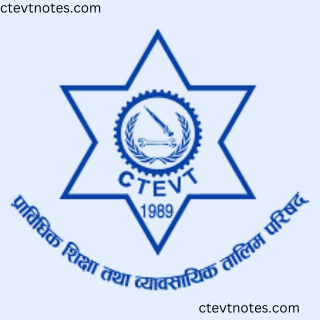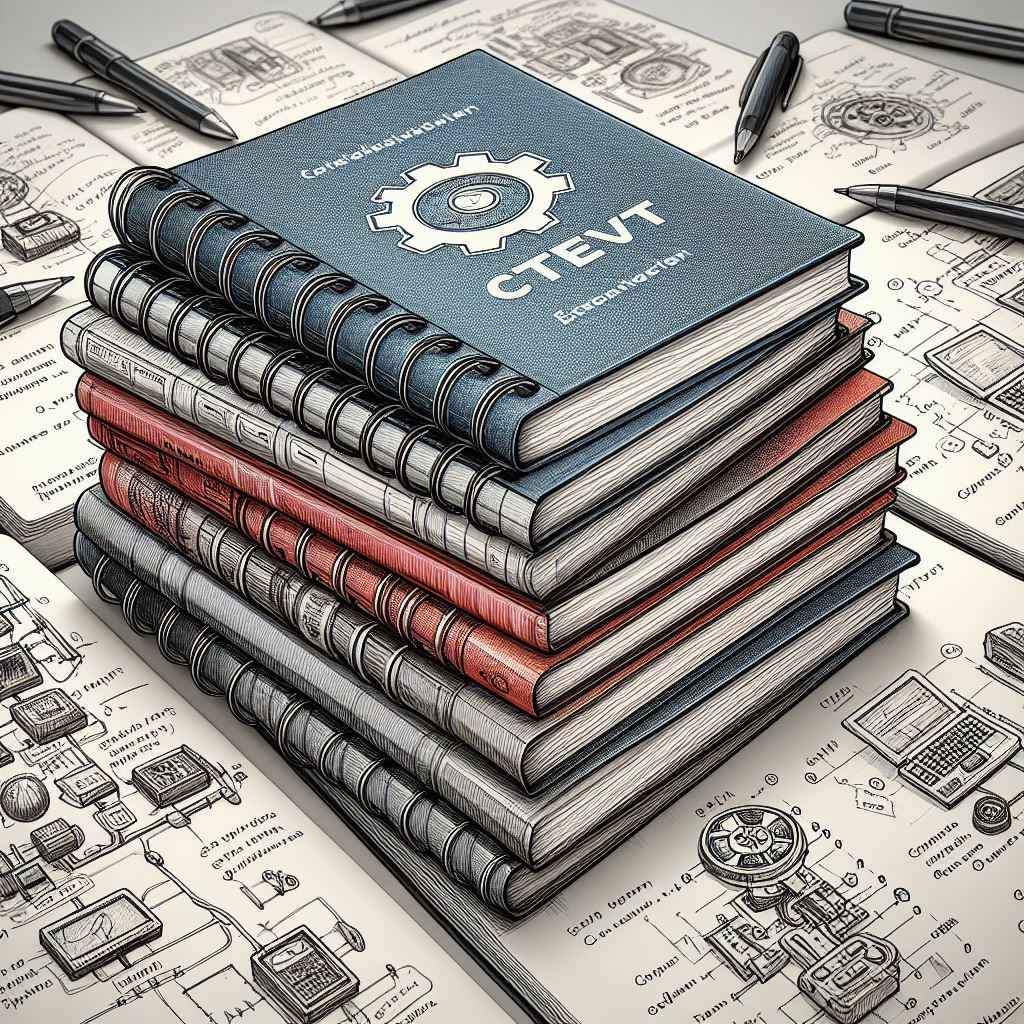The Council for Technical Education and Vocational Training (CTEVT) is the pivotal institution in Nepal tasked with the responsibility of producing skilled technical human resources. With various programs designed to cater to the burgeoning need for technical expertise, CTEVT encompasses a wide array of courses catering to different sectors of skills-based education. For students and professionals alike, obtaining comprehensive study materials for CTEVT note courses is essential for academic success and practical field application. This article presents a detailed collection of notes covering all subjects offered by CTEVT to ensure learners have access to a complete repository of knowledge.
Table of Contents

Overview of CTEVT:
The CTEVT is a national autonomous apex body that oversees technical and vocational education and training programs in Nepal. Established in 1989, it aims to produce skilled human resources required for the nation’s economic and social development. CTEVT offers diploma-level programs, proficiency certificates, and various short-term training courses in fields such as engineering, health, agriculture, hospitality, and management.

Importance of CTEVT Notes:
CTEVT notes serve as a vital tool for students enrolled in technical and vocational courses. These notes provide concise summaries of important topics, key concepts, and practical applications covered in the curriculum. They offer guidance for both theoretical understanding and hands-on skills development, helping students grasp complex subjects more effectively. Additionally, CTEVT notes facilitate exam preparation by offering structured content and revision materials tailored to course requirements.
Subjects Covered:
The collection of CTEVT notes encompasses a wide range of subjects, catering to diverse interests and career paths. Here are several of the principal topics addressed:
- Engineering: CTEVT offers diploma-level programs in civil engineering, electrical engineering, mechanical engineering, computer engineering, and more. Notes for these subjects cover fundamental principles, technical calculations, design methodologies, and practical applications relevant to each field.
- Health Sciences: CTEVT provides courses in nursing, pharmacy, lab technology, dental hygiene, and other health-related disciplines. Notes in this category focus on anatomy, physiology, pharmacology, medical procedures, patient care, and healthcare management.
- Agriculture and Forestry: Agricultural programs offered by CTEVT cover topics such as crop production, livestock management, horticulture, agribusiness, and sustainable agriculture practices. Forestry courses include forest management, wildlife conservation, forest ecology, and timber harvesting techniques.
- Hospitality and Tourism: CTEVT offers programs in hotel management, culinary arts, tourism management, and hospitality operations. Notes in this category cover hospitality industry trends, customer service, food preparation techniques, event management, and hotel administration.
- Management and Business Studies: Courses in management, business administration, entrepreneurship, and marketing are also available through CTEVT. Notes for these subjects address principles of management, organizational behavior, marketing strategies, financial management, and business ethics.

Accessing CTEVT Notes:
CTEVT notes are accessible through various channels, including official websites, educational platforms, libraries, and study centers affiliated with CTEVT. Students can obtain printed notes from authorized bookstores or download digital copies from online repositories. Additionally, some institutions offer specialized coaching and study materials to supplement CTEVT curriculum requirements.

Digital Notes and Interactive Learning
In keeping with technological advancements, digital notes are a significant part of the collection. These are not just static PDFs but interactive documents that can include quizzes, flashcards, and multimedia elements to enhance the learning experience. Such features allow for self-assessment and immersive study sessions, which are particularly beneficial for technical subjects that require a high degree of memorization and understanding.

Tips for Effective Use of CTEVT Notes:
To maximize the benefits of CTEVT notes, students should adopt effective study strategies and organizational techniques. Here are some tips for utilizing CTEVT notes efficiently:
- Organize notes systematically by subject, topic, and chapter for easy reference and retrieval.
- Create personalized study guides and outlines based on CTEVT notes to structure your learning process.
- Use CTEVT notes as a reference tool during lectures, practical sessions, and self-study sessions to reinforce learning.
- Incorporate active learning techniques such as summarization, concept mapping, and self-assessment quizzes to engage with CTEVT notes actively.
- Collaborate with peers to exchange notes, discuss concepts, and clarify doubts, fostering a supportive learning community.
Conclusion:
In conclusion, the complete collection of CTEVT notes serves as a valuable resource for students pursuing technical and vocational education in Nepal. These notes provide comprehensive coverage of various subjects, offering essential guidance for theoretical understanding and practical application. By leveraging CTEVT notes effectively, students can enhance their learning outcomes, prepare for exams with confidence, and embark on successful careers in their chosen fields.












